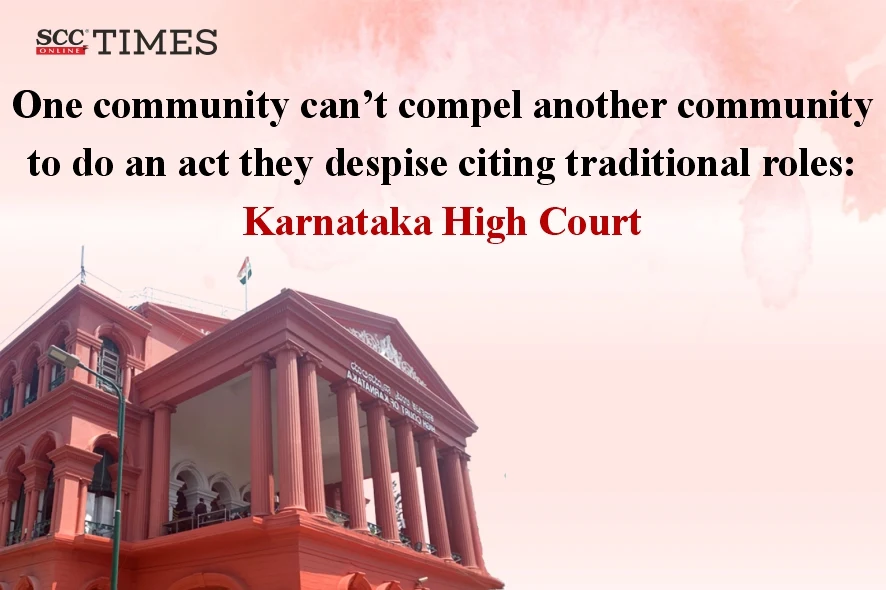Karnataka High Court: The instant matter pertained to petitioner’s prayer seeking directions for the respondents to consider their representation regarding ban on public festivities including ‘Alai Bhosai Kunitha’ during Muharrum in Tumkur village, Vadagera taluk, Yadgiri district. The single Judge Bench of M.I. Arun, J., while considering the issue, opined that the State should promote festivities which spread peace and communal harmony between several communities, but, however, when it is not possible, the decision is best left to the State authorities. It was pointed out that as per the circumstances prevalent in the instant case, the State authorities must decide whether the festivities are required to be gone ahead with or not.
The Court further said that a community has a right to celebrate a festival without provoking the other communities. However, a particular community cannot force another community to do an act which they despise, only on the ground that it has been done traditionally by them.
Background:
Tumkur village, Vadagera taluk, Yadgiri district is known for its spirit of communal harmony. This includes participation of both Hindus and Muslims in the festivals of each other community. In tune with the communal harmony, Muharram festival of the Muslim community has been celebrated by Hindus, wherein certain Hindu Deities are also worshipped by both Muslims and Hindus during the festival.
The petitioner submitted that in Tumkur village, a Hindu deity called Kashimalli is worshipped by both Hindus and Muslims during Muharram festival and the festival is also celebrated by a folk dance called ‘Alai Bhosai Kunitha’ in front of the village temple. It was further submitted that Muslims as well as Hindus belonging to all castes (in this case the Madiga community) participate in the festivities.
The festivities included beating of halige (a type of percussion instrument) by the Madiga Community. However, it was felt that they were being made to beat the same because they were untouchables and for that reason, they stopped beating the halige but took part in the festivities. This gave rise to disharmony amongst the Hindus which resulted in communal clashes.
The petitioner who is an organisation of Madiga community, submitted their representation to ban Alai Bhosai Kunitha. However, the representations were not considered by the government authorities; therefore, the instant petition came into being.
Court’s Assessment:
Perusing the matter, the Court observed that it was unfortunate that a Muslim festival, which has been celebrated harmoniously by both Hindus and Muslims has resulted in communal clashes between upper caste Hindus and the Dalits.
“The salvation of the country lies in identifying human being as a human being and as an Indian with the other identities playing a secondary role”.
Considering the issue whether under the circumstances mentioned above, is it possible to maintain law and order without there being violence or communal clashes during the festivities. The Court stated that State is the competent authority that is required to whether or not Alai Bhosai Kunitha be conducted during Muharram.
Therefore, the Court directed authorities concerned to consider the petitioner’s representation as well as hear all the stakeholders in the festivities and thereafter take appropriate decision in accordance with law. The Court stated that if the authorities decide to give a go ahead to the festivities, then no one can compel the Madiga community to beat the halige and it is the duty of the State to give adequate protection for the participants.
[Madiga Dandora v. State of Karnataka, 2025 SCC OnLine Kar 4561, decided on 26-6-2025]
Advocates who appeared in this case :
Petitioner by: Sri. Vinay Swamy C., Advocate
Respondents by: Sri. Mallikarjun Sahukar, AGA



